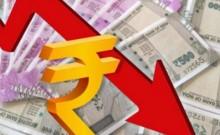
India's statistics ministry has announced plans to revamp its benchmark inflation gauge by directly sourcing price data from major e-commerce players such as Amazon and Flipkart. The move aims to capture evolving consumer habits and address concerns about outdated data, signaling a significant shift in how India calculates retail inflation.
With the increasing importance of online platforms in household spending, the inclusion of e-commerce prices is expected to make India's inflation data more comprehensive. This move aligns with global trends, as countries like the U.S. and South Korea have already integrated online prices into their inflation measures.
According to a private study, India had approximately 270 million online shoppers in 2024, with a projected annual growth rate of 22%. The statistics ministry has already begun scraping prices from e-commerce websites in 12 major cities and is in discussions with platforms to access data directly.
E-commerce firms will be required to share weekly average prices of goods with the government, which will then be cross-checked against a broader dataset to ensure accuracy. The upcoming new series of the Consumer Price Index (CPI) will see a reweighting of items based on recent consumption trends, reflecting changes in spending patterns.

In addition to e-commerce prices, the revamped CPI will incorporate data on airfares and streaming-media prices from online sources, enhancing the index's representativeness and timeliness. These updates are part of a wider strategy by the statistics ministry to modernize its statistical reporting, including a new GDP series with an updated base year and more frequent employment reports.
The ministry is also working on launching a new Index of Services Production (ISP) as a quarterly measure of output in the services sector, which accounts for a significant portion of India's GDP. These initiatives are aimed at improving the accuracy and reliability of economic data to support informed policy decisions.
Overall, the integration of e-commerce data into the inflation index marks a significant step towards a more dynamic and robust statistical framework that better reflects the evolving Indian economy.

















